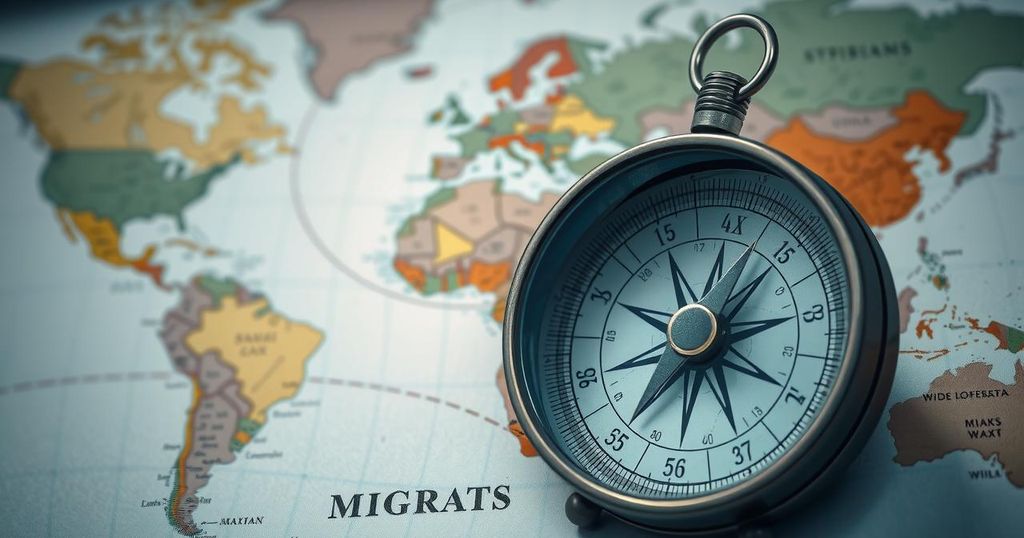U.S. Secretary of State Marco Rubio condemned the regimes of Cuba, Nicaragua, and Venezuela, blaming them for the regional migration crisis during his Latin America visit. He specifically criticized Nicaragua’s governance under President Ortega. Cuban President Diaz-Canel countered these claims, attributing migration pressures to U.S. sanctions. Rubio’s tour includes collaboration with El Salvador on handling crime and migration issues.
During a visit to Latin America, U.S. Secretary of State Marco Rubio condemned the authoritarian leftist regimes in Cuba, Nicaragua, and Venezuela, characterizing them as “enemies of humanity” and attributing the regional migration crisis to their policies. Rubio stated that the migration phenomena in the hemisphere would not exist if these regimes were not in power, highlighting the dysfunctional systems within the countries he criticized.
Particularly focusing on Nicaragua, Rubio highlighted the recent constitutional amendment that has consolidated power in the hands of President Daniel Ortega and his wife, Rosario Murillo. He described Nicaragua’s government as a “family dynasty” that suppresses opposition and religious influence, which has compelled many Nicaraguans to flee their homeland, akin to the mass exits from Cuba and Venezuela.
Cuban President Miguel Diaz-Canel responded to Rubio’s allegations, contending that they encapsulate the rampant hypocrisy of U.S. politicians. Diaz-Canel argues that the outflow of Cuban migrants is directly tied to the U.S. trade embargo, which he claims has deprived citizens of essential goods and led to a migration crisis. He vehemently accused U.S. leadership of “neofascism,” highlighting the adverse ramifications of American policies.
Following his engagements in Costa Rica, Rubio traveled to Guatemala after visits to Panama and El Salvador. During this tour, the President of El Salvador, Nayib Bukele, proposed housing U.S. convicts in a mega-prison designed for gang members, an offer that Rubio appreciated, suggesting a readiness to accept deported gang members from Venezuela and other countries in the region.
The article centers on U.S. Secretary of State Marco Rubio’s accusations against the governments of Cuba, Nicaragua, and Venezuela regarding their role in the ongoing migration crisis affecting the region. Rubio’s comments highlight the complexities underlying the migration dynamics in Latin America, with particular emphasis on the political situations in each of these countries. This context is essential to understanding the broader implications of U.S. foreign policy in relation to Latin American politics and migration issues. Cuban authorities, specifically President Miguel Diaz-Canel, also address these claims, offering a counter-narrative that implicates U.S. policies as contributing factors to the exodus of migrants. The dialogue reflects historical tensions between the U.S. and these nations, particularly in light of trade embargoes and authoritarian governance. Rubio’s tour of Latin America aims not only to address migration but also to forge alliances and support with regional leaders to counteract the influence of leftist governments that the U.S. perceives as detrimental to democracy and stability in the region.
In conclusion, Secretary of State Marco Rubio’s visit to Latin America underscored his administration’s firm stance against the regimes in Cuba, Nicaragua, and Venezuela, which he accuses of fueling the migration crisis. The reactions from Cuban President Diaz-Canel illustrate the longstanding tensions between the U.S. and these nations, with differing narratives about the causes and consequences of migration. Overall, the tensions reveal significant geopolitical dynamics that will influence U.S. foreign policy decisions moving forward.
Original Source: www.hindustantimes.com






